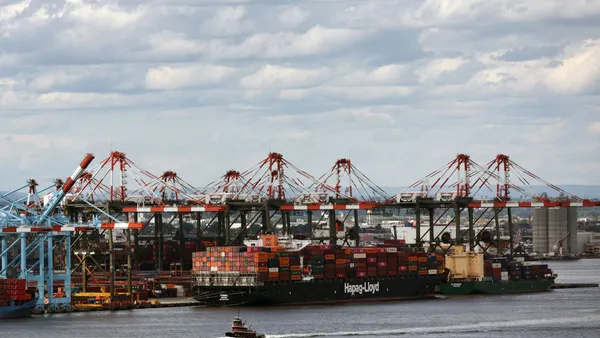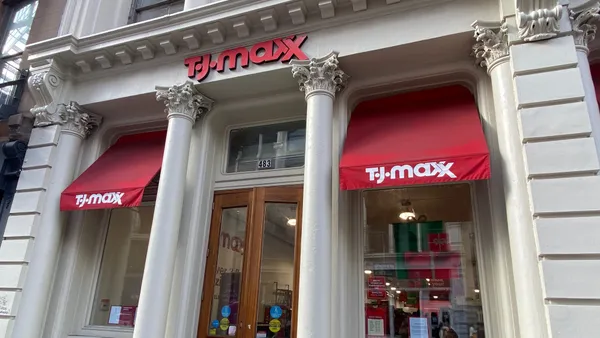Dive Brief:
- CMA CGM announced fully electronic bills of lading will now be available across the group's eBusiness platforms this week. The feature was initially included in the eBusiness launch in April of this year and has been rolling out across the group's brands since then. However, the company notes some countries may have local restrictions against using electronic bills of lading in place of traditional paper documents.
- The push is in line with a growing movement in the maritime industry towards paperless operations and transactions, and CMA CGM's own commitment to achieving greater efficiency and data security through digital initiatives such as the Digital Container Shipping Association and TradeLens.
- Other aspects of the eBusiness platform received upgrades as well, including its Discover My Prices and Instant Quote features. Discover My Prices has been redesigned to include additional pricing information for different types of freight and country-level tariff information, and Instant Quote is now available for U.S. trades and to users that don't have an existing FAK contract for consolidated shipments in CMA CGM's system.
Dive Insight:
According to Philippe Salles, head of e-business, transport and supply chains at Drewry Supply Chain Advisors, "15% of transportation costs are attributed to paperwork, documentation and administration," he wrote in American Shipper. This is exacerbated by the time lost due to copying, distributing, retrieving or correcting these documents as they change hands between shippers and carriers.
Over the past few years there has been an industry-wide push for digitalization in the maritime shipping industry, which had been previously slow to embrace paperless operations. Now, leading carriers including CMA CGM, Maersk, Hapag-Lloyd, MSC and others have signed on to large-scale blockchain initiatives like TradeLens and the Global Shipping Business Network, and are developing digital platforms to help their customers reserve space on ships and securely negotiate international contracts and transactions.
Embracing electronic bills of lading has been an important element of the digital shift as it involves not only cooperation between carriers and their customers, but oftentimes international banking institutions as well. In the case of TradeLens, the initiative's expansion to Russia also included cooperation with the national bank to recognize and process the electronic documents as legally binding transactions and keep that data open (on the platform's blockchain ledger) to the parties involved.
For this reason, CMA CGM's electronic bill of lading feature comes with a caveat that customers will need to check the countries they are shipping to allow them to be used in place of paper documents. Despite growing interest in digital initiatives, the complexities of international trade and maritime law can slow the pace of the industry's digital revolution.
However, there are efforts underway in the United Nations and the Comité Maritime International to create uniform standards for the legal language in electronic bills of lading that could make it simpler for governments and maritime traders alike to legitimize the practice and move away from time-consuming paper contracts.














